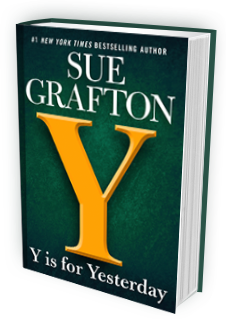Answers to Readers' Questions
Q. When are we going to get more information about Kinsey's background (i.e. about her time as a lawyer, when she was married, etc.)?
A. Kinsey was never a lawyer. She's strictly blue collar. She attended maybe three whole semesters of junior college, but it bugged the hell out of her. She's too rebellious to be a good student. In 'E' IS FOR EVIDENCE, you learn a lot about her second husband, Daniel. The first husband will probably show up in some future book. I know who he is, but I don't know when their paths will cross.
Q. Is Kinsey's family going to play any part in any future stories?
A. In 'M' IS FOR MALICE, the case Kinsey takes on comes to her through her professional connection to her cousin, Tasha Howard, an estate attorney with offices in Lompoc and San Francisco. I don't know how those family matters will be resolved. Family conflicts in the real world aren't always easily settled. Nowhere is it written that we have to get along with people just because they happen to be related to us. Kinsey's a maverick. Who knows what she'll do? Ditto, yours truly. I'm rebellious. I get bored with her family sometimes and then I write about something else.
Q. Who is Kinsey patterned after?
A. Yours truly. Who else? Unless you hate her, of course, and then I disavow any connection.
Q. Who are your characters based on?
A. I wish I knew the answer to this one. Some characters are invented out of whole cloth. Some are borrowed from life with a few modifications thrown in. I've never written about my husband, Steve, or any of my children because I know them all too well. I see them in all their complexities which makes them impossible to render on the printed page. Those observed from a distance serve my purposes much better because I can fill in the blanks any way I choose.
Q. Have you ever met anyone similar to Rosie and Henry? Are they a mixture of several persons that you've met?
A. Henry is entirely invented though by now I feel he's as real as anyone I know. The character of Rosie is based on a woman who used to live in the same apartment building I lived in many years ago. She's taken on a life of her own, of course. A 'good' character will do that. My favorites are the characters who spring to life full-blown...talkative, opinionated, pushy, and impossible. I love it when a character takes over a scene and does the work for me. I sit back and marvel, but it doesn't always happen that way.
Q. What are you going to do when you come to 'Z'?
A. Having reached the halfway mark in the alphabet, my prime focus is on writing each new book as well as I can. To think about 'Z' means skipping right over all the intervening years. If you can tell me what you're going to be doing in the year 2018, then I'll tell you what I'm going to do. I'll be 199 years old by then so I'll be lucky if I don't spend the day drooling on myself.
Q. Is the Kinsey Millhone series going to end at 'Z'? Where do you see the series going after 'Z' IS FOR...
A. Your guess is as good as mine on this one. I can assure you Kinsey Millhone will live on long after the series ends. I have no plans to extend her adventures, but you never know. Ms. Millhone tells me what's going to happen. I don't tell her.
Q. What will you write after you run out of the alphabet?
A. Ask me when I get there. I spent the first twenty years of my writing career preparing for the mystery genre, which is my favorite literary form. Believe me, I'll always write. The question is, will I do so for publication? That's one I don't have an answer in 1996.
Q. What is your background?
A. I was an English major in college with minors in Fine Arts and Humanities. I attended the University of Louisville my freshman year, transferred to what was then Western Kentucky State Teachers College for my sophomore and junior years, and then graduated from the University of Louisville in the summer of 1961. I started writing seriously when I was 18, wrote my first novel when I was 22, and I've never stopped writing since. Of the first seven novels I wrote, numbers four and five were published. Numbers one, two, three, six, and seven, have never seen the light of day...and rightly so. The eighth novel I wrote was 'A' IS FOR ALIBI.
Q. Where do you get your ideas?
A. Ideas are easy. It's the execution of ideas that really separates the sheep from the goats. I read newspapers, textbooks on crime. I talk to private investigators, police officers, jail administrators, doctors, lawyers, career criminals. Ideas are everywhere. I expend the greatest energy testing ideas...shaping and structuring and developing a storyline to make sure it's substantial; something that will entertain the reader from beginning to middle to end.


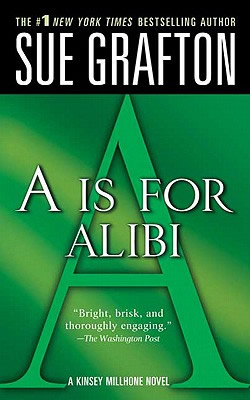 A is for Alibi
A is for Alibi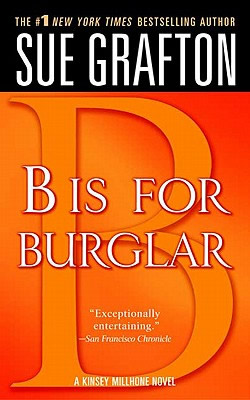 B is for Burglar
B is for Burglar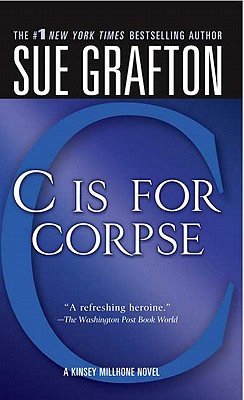 C is for Corpse
C is for Corpse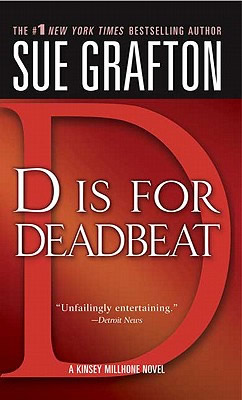 D is for Deadbeat
D is for Deadbeat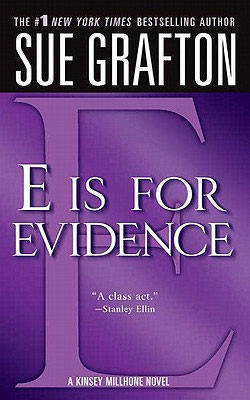 E is for Evidence
E is for Evidence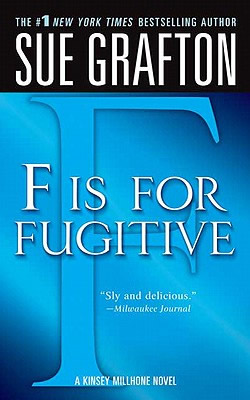 F is for Fugitive
F is for Fugitive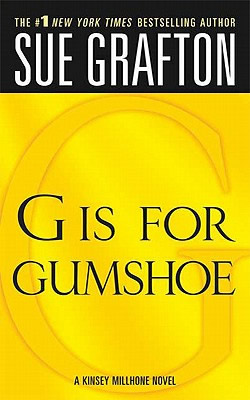 G is for Gumshoe
G is for Gumshoe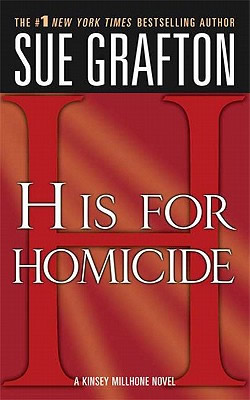 H is for Homicide
H is for Homicide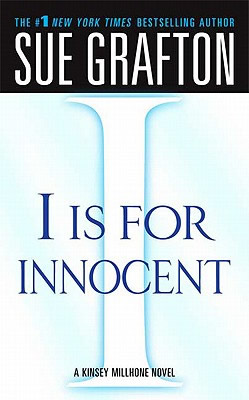 I is for Innocent
I is for Innocent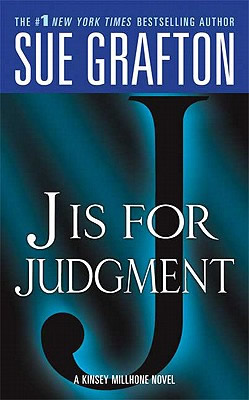 J is for Judgment
J is for Judgment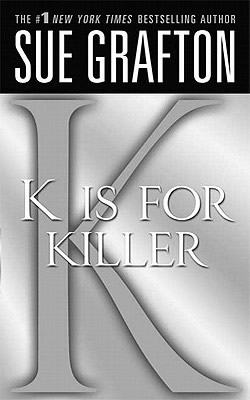 K is for Killer
K is for Killer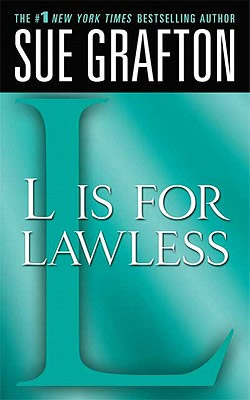 L is for Lawless
L is for Lawless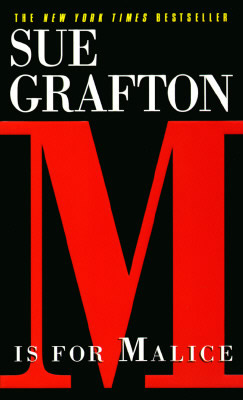 M is for Malice
M is for Malice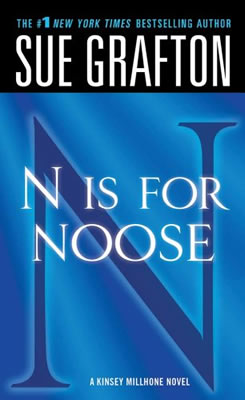 N is for Noose
N is for Noose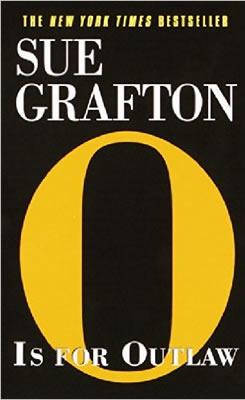 O is for Outlaw
O is for Outlaw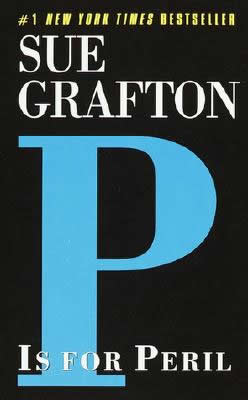 P is for Peril
P is for Peril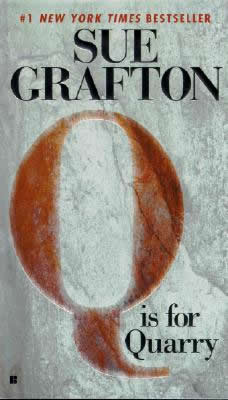 Q is for Quarry
Q is for Quarry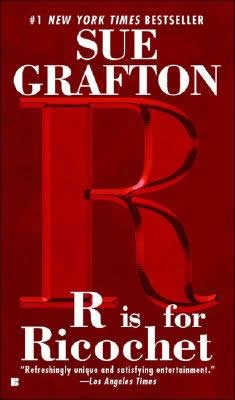 R is for Ricochet
R is for Ricochet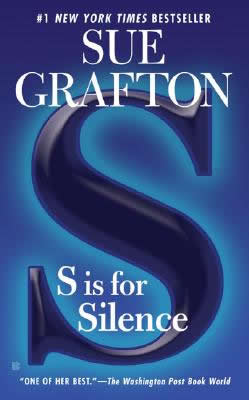 S is for Silence
S is for Silence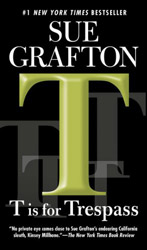 T is for Trespass
T is for Trespass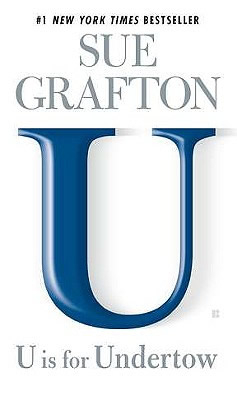 U is for Undertow
U is for Undertow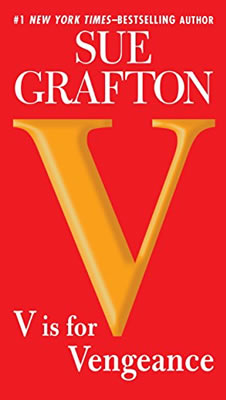 V is for Vengeance
V is for Vengeance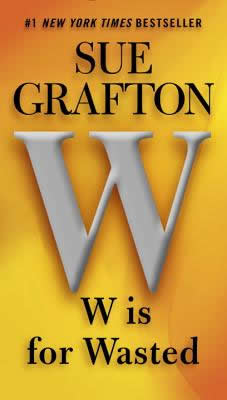 W is for Wasted
W is for Wasted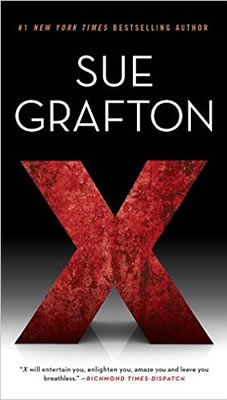 X
X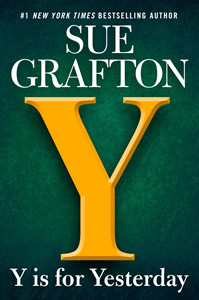 Y is for Yesterday
Y is for Yesterday